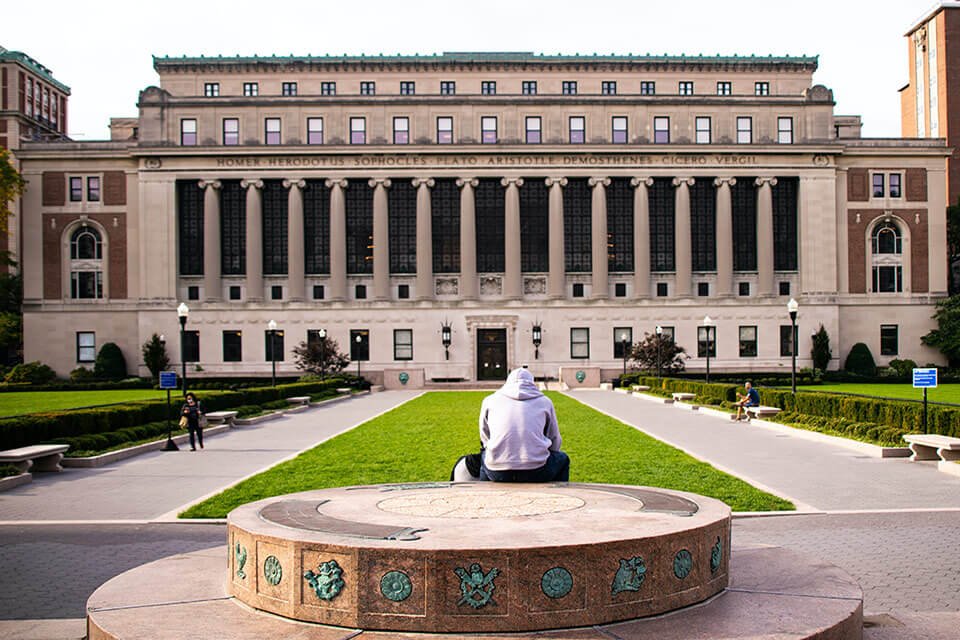Guide to MBA Applications • MBA
6 Highlights About Indian School of Business
POSTED ON 07/22/2022 BY The Red Pen

Are you curious about what’s unique about the Indian School of Business (ISB)? What is it about this fairly young business school that attracts the best talent from India and even the rest of the world? Is it their rigorous curriculum? World-class faculty? Real-world exposure? The answer is that all this and more have made ISB one of India’s premier institutions To give you deeper insight into ISB, one of our consultants shares their experience of studying the General Management Post Graduation Programme in 2019.
What is so special about the Indian School of Business?
1) Enriching curriculum:
The ISB curriculum is a mix of qualitative knowledge and general subject matter in a comprehensive programme. Subjects such as logistics management and operations research offer insight into the day-to-day running of an organisation, while subjects such as financial accounting and managerial economics give you a bird’s eye view of the competencies required to manage a company. Apart from this, ISB supplements theoretical knowledge with practical case studies and hands-on experiences through project work and simulations. We analysed case studies based on companies such as Google and Apple, participated in a simulated online trading platform in the Options and Futures class and even watched The Big Short and applied the same principles in our finance classroom discussions. Visiting faculty also enriched our experience by imparting practical knowledge and experiences based on their active deals and projects.
2) World-renowned faculty:
When looking at the faculty at ISB, you will be amazed by the number of familiar names that pop up. One of our standout professors was Siddharth Shekhar Singh, Associate Professor, Marketing. Besides his in-depth knowledge about consumer behaviour, I was impressed that he frequently used analogies from the Mahabharata and related these to our discussions. Dr Sunil Unny Guptan, Visiting Professor and a mentor and executive coach to several CEOs and top executives, incorporated engaging activities such as street plays into the team management curriculum. Some of the most encouraging conversations I’ve had at ISB stemmed from our discussions outside the classroom.
Another eye-opening conversation was with Ravi Shankar, Professor of Management of Organisations. An HR adviser to the top management of companies, he led discussions that showed me how my personal biases could influence the way I engage and make decisions at work.
The visiting faculty at ISB were equally awe-inspiring—consultants at Fortune 500 companies and other world-class organisations. Ed Rogers, for instance, is the Chief Knowledge Officer at NASA who taught us Complexity Management.
3) Exceptional career opportunities:
ISB was founded by Rajat Gupta, the first Indian CEO of McKinsey & Co. and Anil Kumar, Senior Partner at McKinsey & Co., along with guidance from Northwestern Kellogg, The Wharton School at the University of Pennsylvania, London Business School and MIT Sloan. So it’s no wonder that India’s top recruiters such as Accenture, Amazon, Bain & Co, Barclays, PwC, Deloitte, Boston Consulting Group, amongst others, are frequently seen at campus recruitment fairs. While most jobs are for Indian-based positions, a few companies also offered international opportunities. To prepare for campus placements, we had access to a designated team of counsellors who review resumes and helped us prepare for interviews.
4) Entrepreneurial culture:
ISB is known for supporting and celebrating an entrepreneurial spirit. In fact, the library has a wall dedicated to some prominent companies started by alumni! A significant number of students in my cohort did not opt for prestigious placements. Instead, they spent time during the programme working on their start-up ideas. The holistic curriculum helped students brainstorm their ideas with experienced faculty, while also leveraging the resources available such as research papers and the vast alumni network.
5) Exposure to different cultures:
Though ISB is in India, we were still exposed to an international learning environment and culture through our visiting faculty and a small number of international students. In my cohort, I met students who came from different backgrounds, age groups and cultures. I interacted with peers from across the country, which expanded my views. I gained deeper insight into different industries and their work cultures.
6) The two campuses:
As a part of my Executive Education, I spent time at both the ISB campuses in Hyderabad and Mohali, where I stayed in the executive housing. The main Hyderabad campus, certified by the Indian Green Building Council, is spread over a lush 260 acres, making me wonder if I would ever manage to cover the length and the breadth of this vast campus (I eventually did!). Amidst the greenery are four Student Villages that can accommodate 130-210 students and if you’re lucky, you might even see a peacock or a wild boar roaming about!
The Mohali campus was where I felt more at home due to its smaller size and also the walk to classes was much shorter! Located just 15 minutes from Chandigarh, it was easy to visit the city during the weekend.
Both campuses were equipped with a state-of-the-art gym and swimming pool. The Hyderabad campus even offered daily yoga classes to help us de-stress. At the executive housing on the Hyderabad campus, there was an in-house bar where students could unwind after class, while the 24/7 Jujus cafe and the Café Coffee Day on the Mohali campus were where you could find most students in the evening.
Attending ISB was an experience of a lifetime that benefited me in many ways.
If you are researching schools and wondering if ISB is the right choice for you, get in touch with us.
